A Salvaged Banksy Mural is Now on View in NYC
This unique Banksy mural goes up for auction on May 21st in NYC!

![Unframed-An Exhibit by Street Artist JR at Abandoned Ellis Island Hospitals [Photos]](/content/images/size/w100/wp-content/uploads/2014/10/jr-untapped-cities-anna-brown121.jpg)
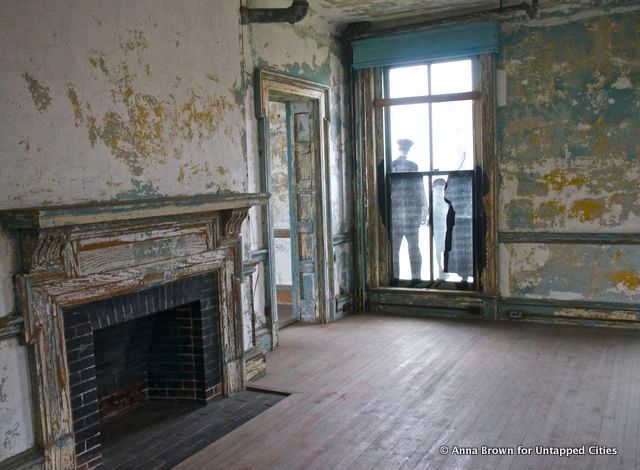
Walking the hallways of an abandoned hospital would give anyone shivers. But what if throughout the tour, apparitions from times past unexpectedly appeared in the adjoining rooms, windows, and staircases? We visited the South Side hospital complex on Ellis Island, the site of Unframed, an installation by Parisian street artist JR that opened on October 1st.
Artist JR is known for his large scale photographs in places accessible to the public view, like New York City’s Times Square, the Pantheon in Paris, and the favelas of Brazil. The hospital site has been off-limits to the public, apart from special visits like our coverage for the 2012 Partners in Preservation campaign. For a short time, it will only be accessible through a guided “hard-hat” tour (we’re offering our own, led by a Save Ellis Island docent). So why would JR choose such an exclusive site that requires a hard-won reservation to visit?
Behind-the-Scenes Hard Hat Tour of Ellis Island Hospital
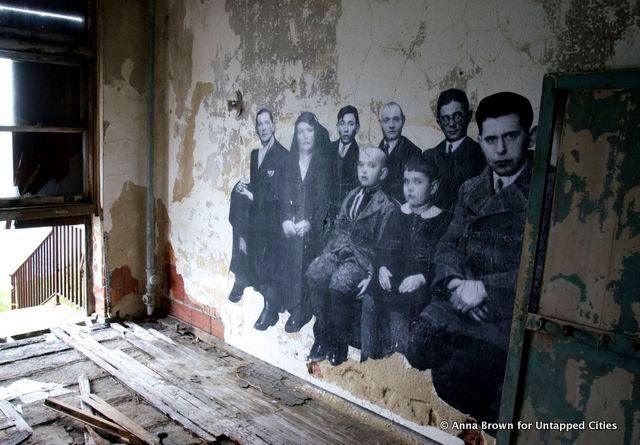
By engaging visitors with the experiences of those who frequented Ellis Island, the work of an internationally-recognized artist like JR could help bring the plight of the endangered hospital complex to the world’s attention. The artist partnered with Save Ellis Island, the organization responsible for the preservation of the 29 historical buildings that make up the hospital site. Preserving the buildings is an expensive task, worsened by damage caused to the site during Hurricane Sandy. All proceeds from the tours, which are led entirely by volunteers, will go to these preservation efforts.
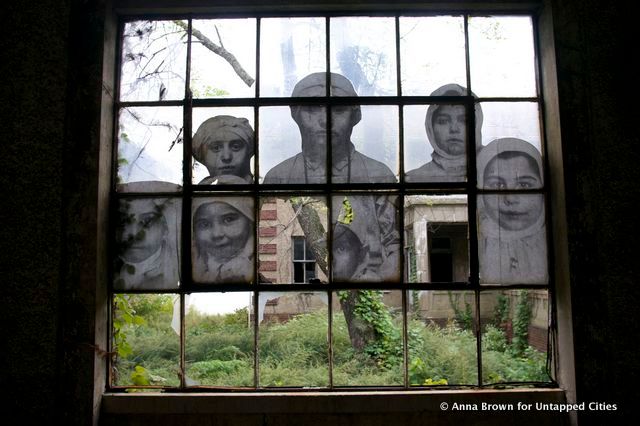
The hospital opened in 1892, and serviced over 1 million patients until its closing in 1954. While most immigrants were not at risk of deportation for illness, 10-20% were temporarily detained for health reasons. Patients brought to the complex suffered from a variety of diseases, including tuberculosis, scarlet fever, trachoma (today known as pink eye), and favus (infection of the scalp). The image above shows a group of children with their head wrapped in a treatment for favus.
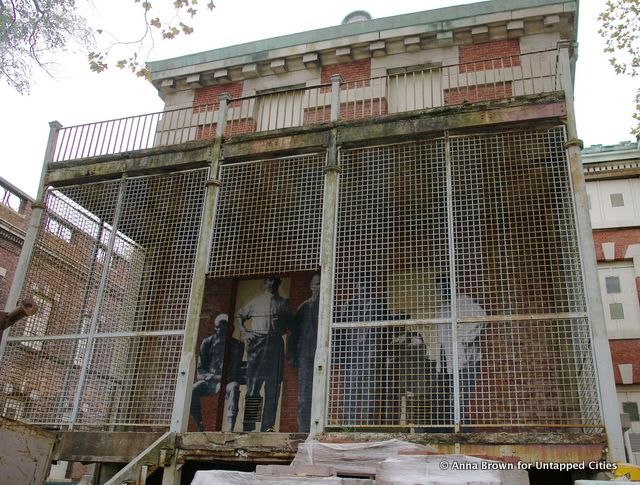
Patients were also brought in if they were perceived as mentally ill. It was believed that fresh air and sunlight were vital for the treatment of these diseases. Above is an image of the “psychopathic ward,” with the original outdoor caged-in porch.
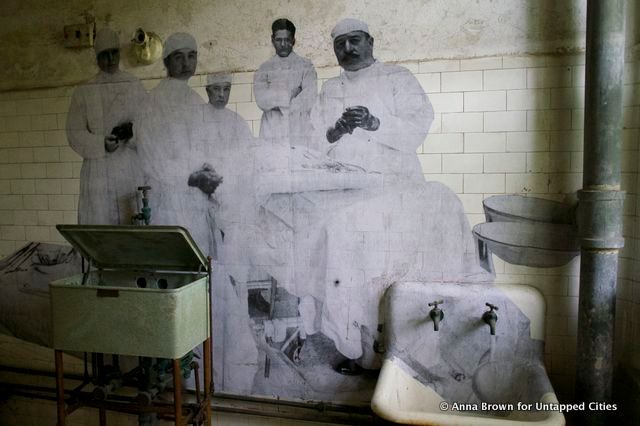
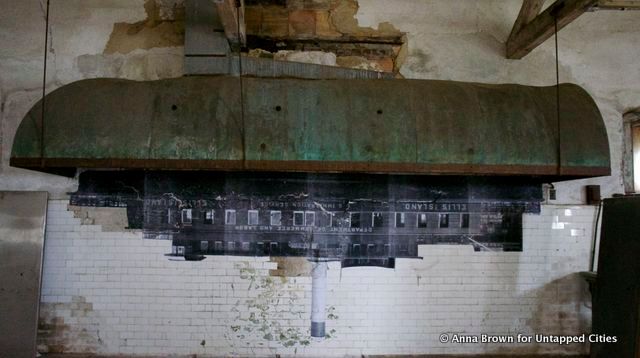
The site was the largest public hospital in the country, and the nation’s most advanced medical facility. Medical students and established doctors traveled from across the country to learn about new treatments, as well as to observe operations and autopsies.
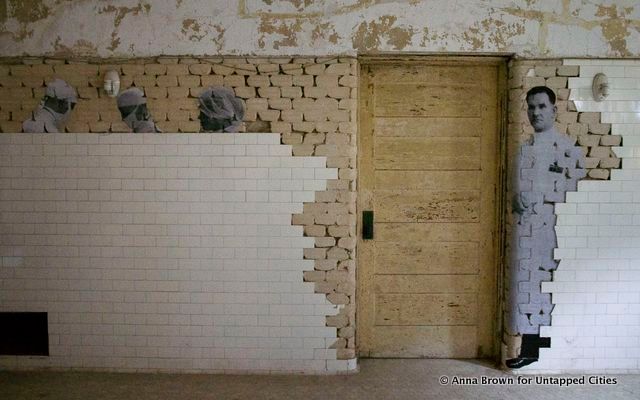
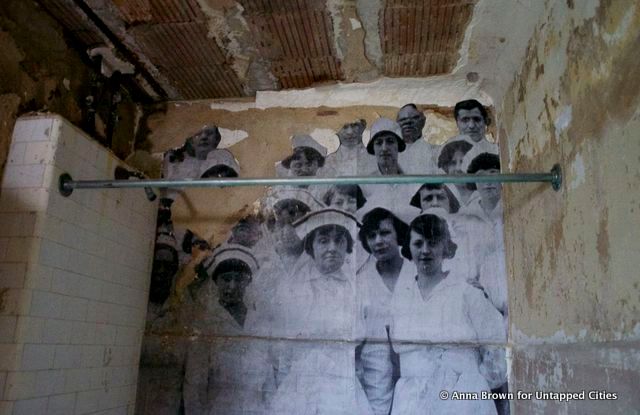
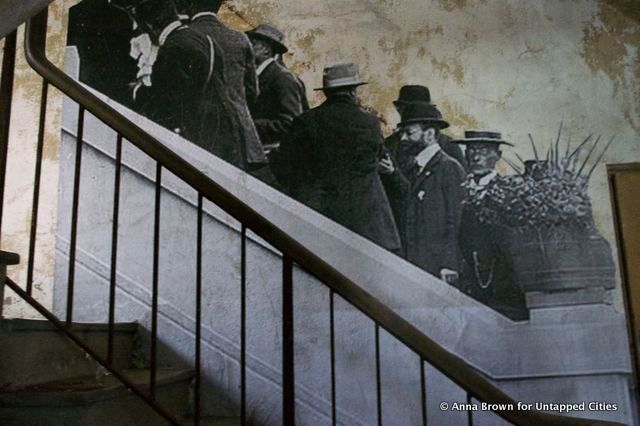
The Red Cross offered patients classes in English and American customs. Many adults and children spoke their first words of English in the hospital.
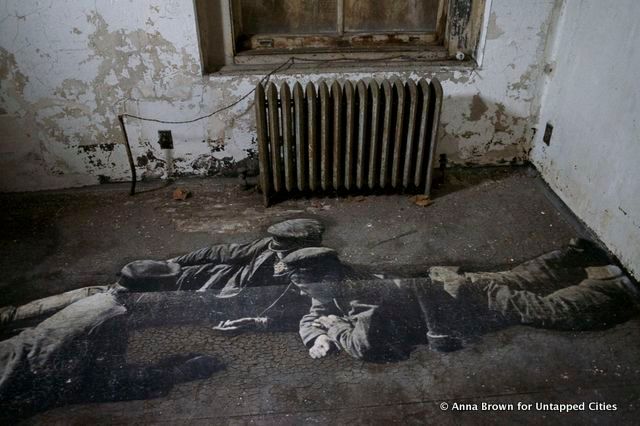
JR whimsically adapts the photos to the building’s dilapidated condition. Below is a picture of a group carrying their luggage off the ship, with a figure whose face has disappeared in the window’s broken glass.
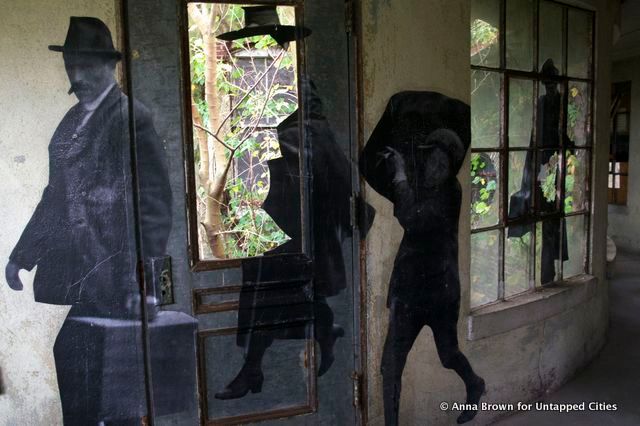
The installation below speaks to the tragedy of mortality at the end of the hopeful and arduous immigrant journey. This is the room where the hospital’s terminally ill were taken to pass their last days. For 3,500 immigrants, the journey to America ended here.
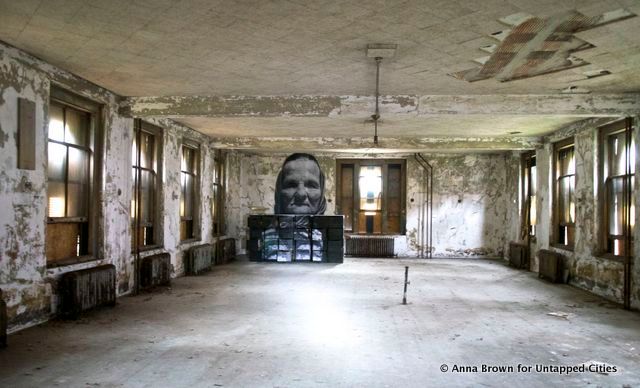
JR’s work highlights the importance of this site, the largest public hospital in the country during its time. To purchase tickets, visit the Save Ellis Island website. Check out more pictures of hospital’s interior here and join us for an upcoming tour!
Behind-the-Scenes Hard Hat Tour of Ellis Island Hospital
For further questions, contact Anna Brown at her Twitter handle @brooklynbonanza.
Subscribe to our newsletter